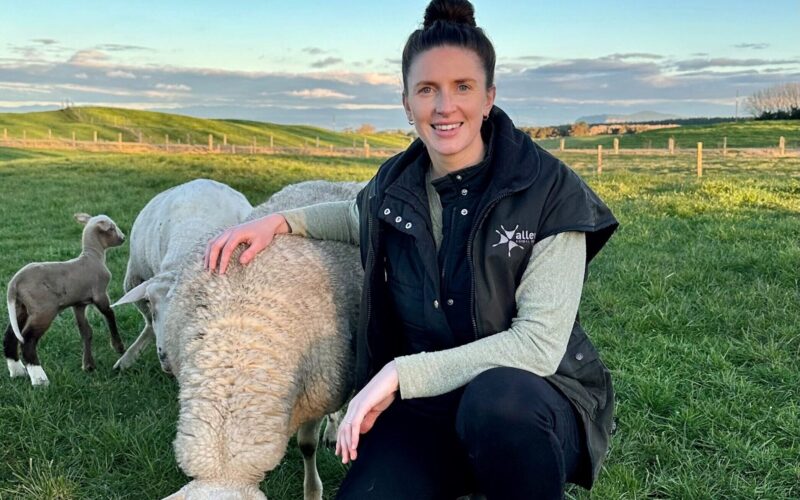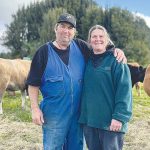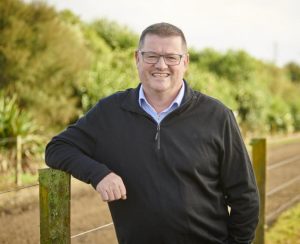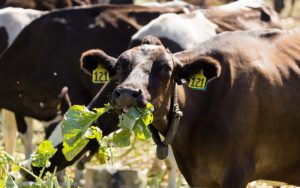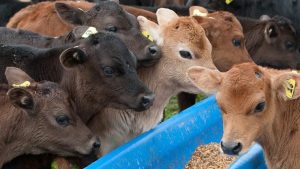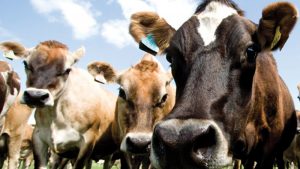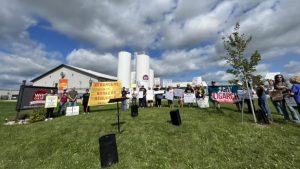
The traditional pathways for dairy farmers like sharemilking are still there, but they seem to be getting tougher and tougher each year, a farming leader says.
Bank flexibility and a change of mindset from retiring farmers is needed for New Zealand to avoid more sheep and beef properties being blanketed in pines, Ruby Mulinder says.
“It can be pretty tough for young farmers to get their foot on the first rung of the farm ownership ladder,” the Federated Farmers Rotorua-Taupō meat and wool chair says.
“Unless you’re inheriting a farm or there’s some sort of family finance available, it just feels too far out of reach for most young farmers coming up through the ranks.
“The traditional pathways for dairy farmers like sharemilking are still there, but they seem to be getting tougher and tougher each year.
“For young sheep and beef farmers, you really need to buy 300-plus hectares if you’re going to be financially viable, but without an equity partnership or vendor finance it’s hard to get started.”
Mulinder, the 2024 Federated Farmers ‘Meat & Wool Advocate of the Year’, knows this from personal experience.
The farm consultant and her engineer husband Sean Nixon worked long hours in professional jobs off-farm, and were “scroogier than Scrooge” with their spending, to build equity.
They successfully purchased a 142ha farm near Tihoi on the north-western shores of Lake Taupō in 2020, but getting the deal over the line was far from simple.
“It took some drawn out and painful negotiations with the bank and the willingness of the vendors to leave some finance in,” Mulinder says.
“The previous owners effectively became a second bank. They left in a chunk of money, interest incurring, that gave us the hand up we needed.
“That’s what it takes: a bank willing to look at different ways to skin the cat, and a retiring farmer willing to give the next generation a look in.
“As an industry, we need to have more honest conversations about this. Out of all our friends, we don’t know anyone else who’s in ownership who didn’t get there via the family farm.”
Mulinder grew up in central Hawke’s Bay where her father managed the Pōrangahau farm of former Cabinet Minister Duncan MacIntyre for 16 years before the family moved to Ongaonga.
On a dairy farm down the road, she was milking cows from an early age, then picked up farm work as she paid her way through an agricultural science degree.
After graduation she worked for Landcorp for five years on dairy farm conversions, before she and Sean moved to the UK to try and put more money together.
She worked as senior farm business manager for cheddar cheese makers in Devon, while Sean played rugby and worked for Tetra Pak.
The young family see huge potential in sheep milk and are relishing the challenge of operating a 100% natural rearing system.
This system enables ewes to rear their lambs for six weeks before weaning, then milking commences. Non-replacement lambs are finished on-farm or sold store.
The first year on their Tihoi property, with 500 ewes to train to be milked, was hard, all with a new baby in tow.
Now they’ve built up to 800 dairy ewes, with 150 beef cattle as well, a mix that works well in the sensitive lake catchment with strict nitrate-leaching controls.
“New Zealand milking sheep genetics aren’t quite there yet. They’re soft in the foot and they’re not particularly hardy,” Mulinder says.
“We’re really working on our breeding strategy and starting to see some successes. This season only 8.5% of our hoggets were dry at scanning.”
The couple’s own flock is growing too: Connor is now three, and Mulinder or Sean will have 3-month-old Flynn in a frontpack as they get on with their farm work.
As if raising a young family, running a farm, and juggling busy jobs off-farm isn’t enough, Mulinder also plays a key role working with Chatham Islands farmers.
“Sheep and beef farming is tough enough as it is right now,” Mulinder says.
“When you put 800km of open water between your farm and markets on top of that, it certainly doesn’t make it any easier to earn a dollar.
“Three outages with the ship that brings their stock to New Zealand for processing has created a massive backlog, and because of the distance, the price of inputs is verging on extortionate.”
Mulinder says her role with Federated Farmers has allowed her to raise these issues directly with Ministers and decision-makers in Wellington.
“Federated Farmers is all about empowering farmers and creating opportunities for them to be their own best advocates,” she says.
“They’ve got a seat at the table and they’re providing a true farming voice that otherwise just wouldn’t be there.”
Federated Farmers, New Zealand’s leading independent rural advocacy organisation, has established a news and insights partnership with AgriHQ, the country’s leading rural publisher, to give the farmers of New Zealand a more informed, united and stronger voice. Federated Farmers news and commentary appears each week in its own section of the Farmers Weekly print edition and online.
You can now read the most important #news on #eDairyNews #Whatsapp channels!!!
🇺🇸 eDairy News INGLÊS: https://whatsapp.com/channel/0029VaKsjzGDTkJyIN6hcP1K
